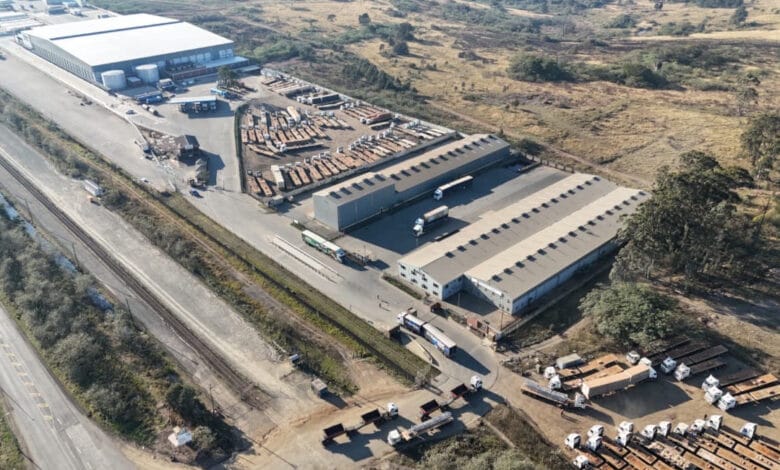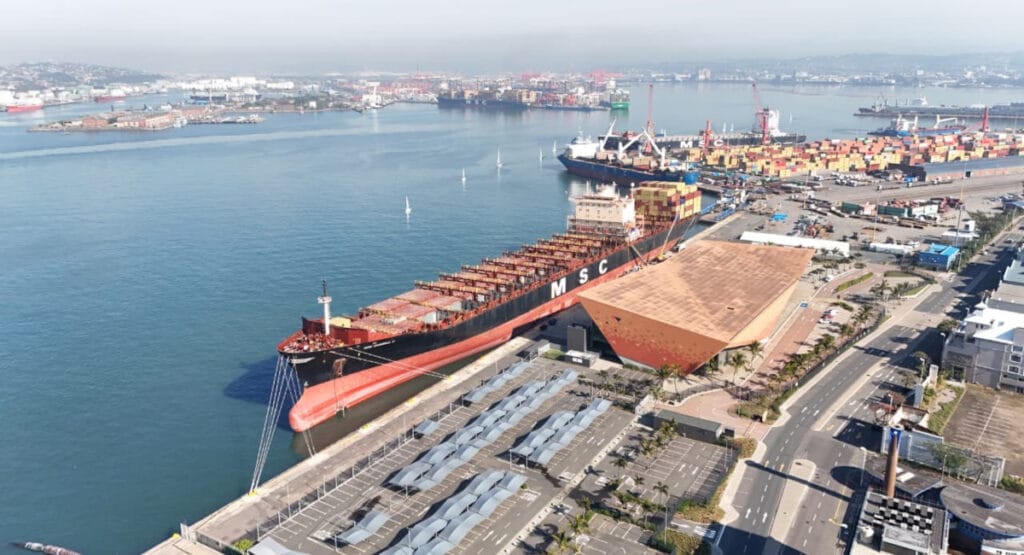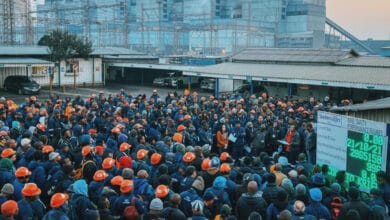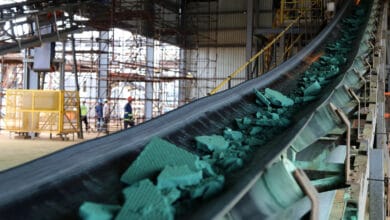Metal Line Africa expands facilities as influx of battery metals surges

Metal Line Africa, a transporter and storage partner to the mining, metals and minerals industries, is rapidly scaling up operations to meet unprecedented demand for battery metals. The company owns and operates an extensive asset base of bonded and freestore warehouses in South Africa, with a workforce of more than 450 employees.
As the company is deeply entrenched into the bunkering and export world, they have been occupied with the interests of metals on the ocean and are now turning their eyes inland for investment, as many logistics giants pour investment into African export infrastructure, ports, privatised rail and cargo handling solutions.
The Battery Metals market consists of Manganese, Lithium, Nickel, Lead, Cobalt, Graphite, and many other high-value commodities. These industries collectively are expected to become a trillion dollar sector by 2035, and South Africa stands positioned to become the global market leader for battery metals, base metals and a continued crowning as the world’s biggest source of PGMs.
Major metal warehouse expansion in Durban
As a leader in the bulk commodity handling space, the company has taken initiative to make use of privatised port facilities, and holds significant volumes of real estate including prominent shipping wharfs in Durban / PE / Maputo and Richards Bay.
Metal Line Africa CEO, Chris James, explained that the decision to make use of private facilities is justified by the increased levels of handling efficiency and surging demand. Privately managed facilities offer additional reinforcements and ultimately make Metal Line Africa more stable while lessening the load on the State,” said Chris James, Metal Line Africa CEO in an interview.
The company has recently expanded its 100,000m² Durban warehousing facility and acquired a further 40,000m² of land to create capacity for a large influx of base metal imports from SADC.
The demand for lithium and other battery metals fundamentally drives the investment initiatives taken by the company in the export-heavy shipping district, and continues to climb as more commodity traders join the lucrative Battery Metals industry.
What this signals to mining investors in Africa, is that the mining industry itself is growing, and the development of the infrastructural component is suddenly looking like it will be heavily funded and privatised. This signals two things: efficiency and profitability.
Private stakeholders often have higher interest in ensuring upkeep of logistical facilities, as can be observed in Durban harbour between state owned and privately owned facilities. While the public and the state will always be interdependent, the privatisation of the infrastructural investments in the logistics space sends positive signals to local and international miners. It further signals hope, and positive investor sentiment.
Lithium demand rising fast and Metal Line Africa opens doors to lead, aluminium and motor metals market
Metal Line Africa CEO, Chris James, confirmed that the lithium market already occupies 15% of the company’s available warehousing space in Durban, a sharp signal of the accelerating demand for energy transition commodities.
Metal Line Africa currently warehouses copper cathode, lithium, steel, softs, and bulk related commodities (Chrome / Manganese / Coal) in the metals and minerals sector. The company is also opening its doors to the growing lead and aluminium industries, anticipating further pressure from the electric vehicle market as global car production volumes rise from 85 million units in 2024.
With the Fourth Industrial Revolution underway, one can not help but think of the sheer volume of metal commodities that will be required to fuel this revolution, and the opportunities that are born from this revolution in the relevant commodity sectors.
Regional and global positioning
Metal Line Africa will attend the International Commodity Summit 2025 in November as a leader in metals / minerals logistics. The company is currently expanding into the SADC region, with active port facilities in Maputo and Walvis Bay, and is positioning itself for exponential growth across Africa.
Metal Line Africa is a regular participant at local conferences, major international conferences, and now stands in line to become one of the largest metal transporters in Sub-Saharan Africa with an observable dedication to industry specific community involvement.

What matters is that aspiring logistics leaders can learn from the hyper-specialisation of Metal Line Africa and see that generalisation and value are not always linked. Hyper-specialised entities like Metal Line Africa reinforce the notion that niche markets benefit the most from the some-12,000+ mines in South Africa alone.
It is expected that the mining industry doubles in size by 2050, and that the human population will maintain steady growth, meaning that more food, cars, houses and related facilities will have to be developed – and more jobs. This makes today one of the best times in history to turn eyes toward the mining industry, metals refining, and to recognise the potential of Africa’s untapped resources.
Copper-rich Congo boasts vast deposits of the metal, lithium in Zimbabwe and rare earths in Botswana are overly documented and South Africa’s institutional knowledge around PGM extraction and gold refining are often reported in the news. What is under-studied is the potential value of the logistical and infrastructural industries surrounding the mining and metals industries in Africa, which are set to exceed US$449 billion in value by 2030, according to an in-depth study by Statista.
Optimised logistics system
Traditionally, the bulk transport of metals and minerals has relied heavily on tippers and side tippers, a system often slowed by high operational costs, time-intensive offloading, and safety risks. Stolen chrome and hijacked coal trucks are well-documented in South Africa.
Metal Line Africa has found a way to out-smart the system in this respect, and created a safer method of commodity transport in Africa. Holding a significant share of bulk commodity exports at Durban Port, the organization transports commodities nationwide using its engineered flatbed and bag system, which reduces the need for tippers and side tippers.
The adoption of the unique bagged transport system has not only optimised logistics but also consolidated Metal Line Africa’s position as a leader in the bulk commodity supply chain.
With expanded warehousing facilities in Durban, Maputo, and Walvis Bay, the company is well-positioned to manage increasing trade volumes flowing through Southern Africa, especially as demand for battery metals and industrial commodities accelerates.
Metal Line Africa’s engineered flatbed bagging system eliminates much of this inefficiency, allowing for faster loading and unloading, greater cargo security, and more precise handling, besides for the avoidance of theft.
As the battery metals industry continues to surge, the need for innovation is ever greater. Through its flatbed bagging system, Metal Line Africa has not only solved a logistics challenge but also cemented its reputation as a driving force in modernizing the commodity transport sector. What remains open for dialogue is the value of investment in the African transportation and infrastructure sectors, and the privatisation of our resources and their related industries.









